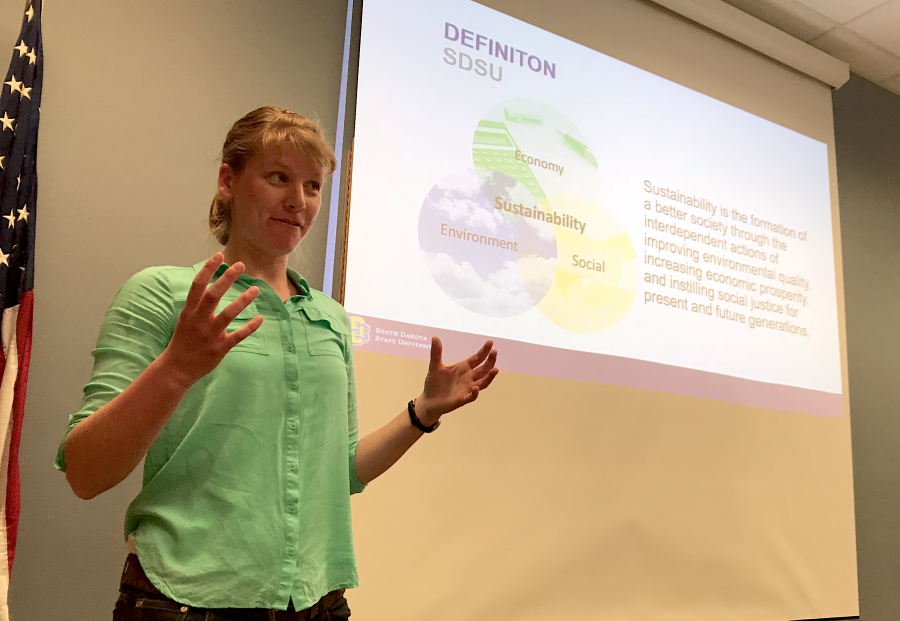Sustainability can be practical for students living on and off campus according to Sustainability Specialist Jennifer McLaughlin. During an Oct. 22 presentation to the Students’ Association, she breaks down the possibilities.
The concept includes not only like recycling and limiting waste but also, McLaughlin said, Sustainability is increasing economic prosperity, improving the environment, instilling social justice for present and future generations.
“It’s a tough concept, it’s big and it’s broad,” she said. “We should all have access to basic human needs. Distributing them correctly is a way to make society better and last longer.”
McLaughlin’s steps to practically practice sustainability include individual action, saving energy, reducing food waste, water use and general waste and using different means of transportation.
Individual action
Looking at the different goals of sustainability, McLaughlin said students “taking it to heart” causes a huge impact.
“We don’t have to do all of them,” she said. “Talk about them and promote them to peers.”
Energy
Unplug devices when not in use like TV, air-dry your clothes, use natural daylight, close windows when the air conditioning or heat is running.
“I know, I’ve lived in the dorms too and it can get kind of stuffy,” she said. “(Closing the windows) keeps all the air in there and it’s much more efficient.”
Food
This concept is based on only buying what one will actually use and eat.
“When you look at climate change [food waste] is the biggest thing that contributes to it,” she said.
McLaughlin also suggests looking into how food the food you eat is grown. Do land practices that producer uses take care of the environment? If so, you’re limiting food waste by choosing a producer uses waste-lessening practices.
Transportation
Students can use a sustainability when they go around campus by riding a bike, walking or carpooling with a friend.
“The campus really isn’t that big and I know it gets cold, McLaughlin said.
Another benefit of being sustainable with transportation is the exercise benefits. Even choosing not to take the elevator and taking the stairs saves energy and
Water
Tips McLaughlin offered is to take five-minute showers, only do full loads of laundry and install low flow shower heads, toilets, faucets to save water.
Waste
Again, McLaughlin said only use what you need. Also, she said to go reusable get a reusable straw or bottle.
Another way is to print double-sided. She mentioned the library does this automatically, so students don’t have to worry. She said to shop second-hand stores.
“We have some really good consignment stores in town,” she said.
At the end of the presentation, McLaughlin gave ways for SA to further sustainability efforts on campus through legislation and conversations.
Another thing up for discussion is including a green fee in the students’ General Activity Fee (GAF). It’s being discussed in the Student Life workgroup as apart of the GAF Strategic Plan Steering Committee.



















